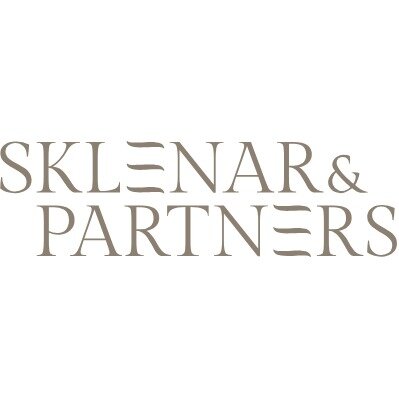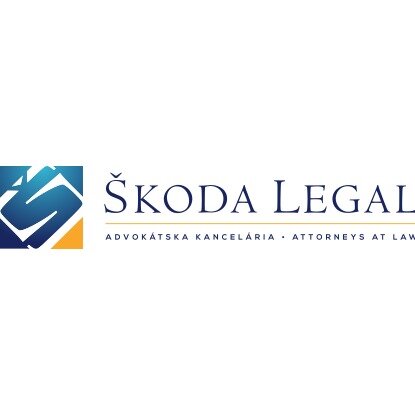Best Communications & Media Law Lawyers in Slovakia
Share your needs with us, get contacted by law firms.
Free. Takes 2 min.
Or refine your search by selecting a city:
List of the best lawyers in Slovakia
About Communications & Media Law in Slovakia
Communications & Media Law in Slovakia encompasses regulations and legal frameworks governing the dissemination of information through various media channels, including television, radio, print, and digital platforms. This field of law addresses issues related to freedom of expression, censorship, privacy, defamation, and intellectual property rights. As Slovakia is a member of the European Union, its legal system in this domain is also influenced by EU legislation, which aims to maintain a balance between protecting the public's right to information and safeguarding individual rights.
Why You May Need a Lawyer
There are several situations where individuals or organizations may require legal assistance with Communications & Media Law in Slovakia:
- Handling defamation cases or reputation management issues.
- Dealing with censorship or freedom of speech matters.
- Navigating intellectual property rights regarding content creation or distribution.
- Ensuring compliance with advertising standards and regulations.
- Resolving disputes related to breach of privacy or data protection.
- Registering or renewing broadcasting licenses.
- Understanding digital media laws and regulations for online content.
Local Laws Overview
Key aspects of Slovakian Communications & Media Law include:
- The Constitution of Slovakia guarantees freedom of expression and the right to information, while also allowing limitations to protect national security, public order, and the rights and reputations of others.
- Defamation is addressed under both civil and criminal law, with penalties ranging from fines to imprisonment.
- The Broadcasting and Retransmission Act governs television and radio content, establishing licensing requirements and content restrictions.
- The Press Act regulates print media, including mandatory registration and the right of reply for affected parties.
- Data protection is overseen by the Personal Data Protection Office, which ensures compliance with the European Union's General Data Protection Regulation (GDPR).
- Advertising practices are regulated to prevent misleading or false content, with oversight provided by the Council for Broadcasting and Retransmission.
Frequently Asked Questions
What are the consequences of defamation in Slovakia?
Defamation can lead to civil actions for damages, retraction requests, and criminal charges that may result in fines or imprisonment, depending on the severity and context.
How is censorship enforced in Slovakia?
Censorship is generally limited in Slovakia; however, restrictions may apply, particularly in areas related to hate speech, national security, and protecting minors. The Council for Broadcasting and Retransmission plays a role in overseeing content standards.
What protections exist for journalists in Slovakia?
Journalists are protected under the Constitution, with rights to freedom of expression and access to information. However, they may face restrictions in areas like defamation and national security reporting.
How can I obtain a broadcasting license?
To obtain a broadcasting license, applicants must submit a request to Slovakia's Council for Broadcasting and Retransmission, adhering to specific criteria and demonstrating content compliance requirements.
What is the role of the Personal Data Protection Office?
The Personal Data Protection Office enforces data protection laws, ensuring entities comply with the GDPR and protecting citizens' personal information from abuse.
Are there specific regulations for online media?
Yes, online media are subject to digital communication laws, including intellectual property rights, data protection, and e-commerce regulations, aligning with EU directives.
How can I ensure my advertising content is compliant?
Advertising content must comply with national and EU regulations, avoiding misleading information, respecting consumer rights, and adhering to specific industry guidelines.
What steps should I take if I believe my privacy has been breached?
If you suspect a privacy breach, you can file a complaint with the Personal Data Protection Office and seek legal counsel for possible civil litigation.
Can foreign media outlets operate freely in Slovakia?
Foreign media outlets can operate in Slovakia but must comply with the same standards and licensing requirements as domestic media organizations.
What are the rights of individuals concerning media corrections or retractions?
Individuals have the right to request corrections or retractions of information that is incorrect or damaging, as outlined in the Press Act and related legislation.
Additional Resources
For further information and assistance, consider consulting these resources:
- Ministry of Culture of the Slovak Republic
- Council for Broadcasting and Retransmission
- Personal Data Protection Office
- Slovak Chamber of Commerce and Industry
- European Digital Rights (EDRi)
Next Steps
If you need legal assistance in the field of Communications & Media Law, consider the following steps:
- Consult with specialized law firms or attorneys with experience in Communications & Media Law.
- Engage with industry associations for guidance and support.
- Contact regulatory bodies for specific compliance queries or disputes.
- Research potential legal issues through available online resources and government publications.
- Participate in seminars or workshops on media law to stay informed about recent developments and legal best practices.
Lawzana helps you find the best lawyers and law firms in Slovakia through a curated and pre-screened list of qualified legal professionals. Our platform offers rankings and detailed profiles of attorneys and law firms, allowing you to compare based on practice areas, including Communications & Media Law, experience, and client feedback.
Each profile includes a description of the firm's areas of practice, client reviews, team members and partners, year of establishment, spoken languages, office locations, contact information, social media presence, and any published articles or resources. Most firms on our platform speak English and are experienced in both local and international legal matters.
Get a quote from top-rated law firms in Slovakia — quickly, securely, and without unnecessary hassle.
Disclaimer:
The information provided on this page is for general informational purposes only and does not constitute legal advice. While we strive to ensure the accuracy and relevance of the content, legal information may change over time, and interpretations of the law can vary. You should always consult with a qualified legal professional for advice specific to your situation.
We disclaim all liability for actions taken or not taken based on the content of this page. If you believe any information is incorrect or outdated, please contact us, and we will review and update it where appropriate.
Browse communications & media law law firms by city in Slovakia
Refine your search by selecting a city.










